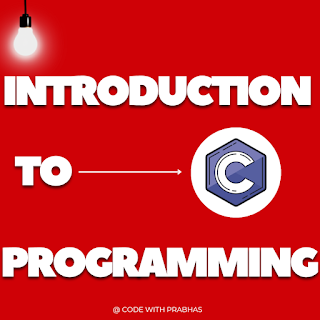Introduction to C Programming: The Mother of All Languages
If you're stepping into the world of programming, C is the perfect place to start. It’s not just a language—it’s the foundation upon which many modern languages like C++, Java, and Python are built. In this post, we’ll explore what makes C so powerful, why it’s still relevant, and how you can begin your journey with it.
What is C Programming?
C is a procedural programming language developed by Dennis Ritchie in 1972 at Bell Labs. It was originally designed for system programming and writing operating systems—most notably, UNIX. Despite being over 50 years old, C remains a go-to language for performance-critical applications.
Why Learn C?
- Strong Foundation: Learning C helps you understand how computers work at a low level—memory, pointers, and data structures.
- Portability: C programs can run on almost any machine with minimal changes.
- Speed: C is incredibly fast and efficient, making it ideal for embedded systems and real-time applications.
- Gateway to Other Languages: Once you master C, picking up C++, Java, or even Rust becomes much easier.
Setting Up Your Environment
To write and run C programs, you’ll need:
- A text editor (VS Code, Sublime Text, or Code::Blocks)
- A C compiler (GCC is the most popular)
- Optional: Online IDEs like Programiz or Replit
My First C Program
#include <stdio.h>
int main() {
printf("Hello, World!");
return 0;
}
Program Output:
Breakdown:
#include <stdio.h>: Includes the standard input/output library.int main(): Entry point of the program.printf(...): Prints text to the screen.return 0;: Ends the program.
Key Concepts to Learn
Here’s a roadmap for beginners:
- Variables and Data Types
- Operators (Arithmetic, Logical, Relational)
- Control Structures (if, switch)
- Loops (for, while, do-while)
- Functions
- Arrays and Strings
- Pointers
- Structures and Unions
- File Handling
Tips for Beginners
- Practice daily with small programs.
- Don’t just copy code—understand it.
- Debug your own errors—it’s the best way to learn.
- Build mini-projects like a calculator, quiz app, or student record system.
Final Thoughts
C might seem intimidating at first, but once you get the hang of it, it becomes a powerful tool in your programming arsenal. Whether you want to build operating systems, dive into embedded systems, or just understand how computers really work—C is your launchpad.







0 Comments